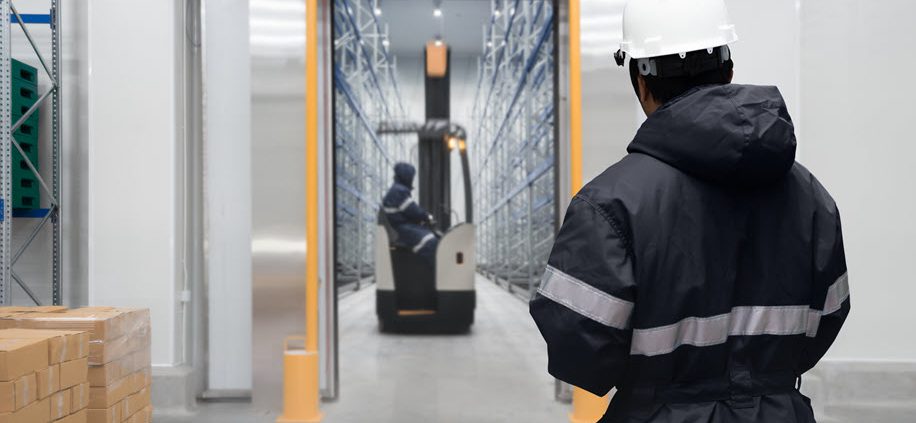Comprehensive Guide to Industrial Warehouse Security with Static Security Officers: Mitigating Risks and Ensuring Safety in Cambridge
In today’s industrial landscape, ensuring the security of warehouse facilities is paramount to safeguarding valuable assets and maintaining uninterrupted operations. Industrial warehouses are often vulnerable to various risks, ranging from theft and vandalism to unauthorized access and workplace accidents. For businesses in Cambridge, where industrial activities are on the rise, implementing effective security measures is more critical than ever.
One of the most reliable and traditional methods of warehouse security is the deployment of static security officers. These officers provide a physical presence that can deter criminal activity, respond to incidents in real time, and monitor the premises for potential threats. In this blog, we’ll explore the common security risks faced by companies in Cambridge and delve into how static security officers can play a vital role in mitigating these risks. Additionally, we will offer actionable suggestions to enhance the overall security of industrial warehouses.
Common Security Risks Faced by Industrial Warehouses
1. Theft and Burglary
Industrial warehouses often store high-value goods, raw materials, and equipment, making them prime targets for theft and burglary. The sheer size and often remote locations of these facilities increase their vulnerability, especially during non-operational hours. Criminals may attempt to exploit weak points in the facility’s security, leading to significant financial losses and disruptions in operations.
Pain Points:
- Loss of Valuable Assets: Stolen goods and materials can result in significant financial losses and interruptions in the supply chain.
- Insurance Premiums: Repeated incidents can lead to increased insurance premiums, directly impacting a company’s profitability.
- Reputational Damage: Ongoing security breaches can damage the trust of clients, partners, and employees, affecting business relationships.
2. Vandalism and Sabotage
Industrial warehouses can be targets for vandalism, which can result in costly property damage and disruptions in operations. Sabotage, whether from external threats or disgruntled employees, can have severe consequences, leading to production delays, damage to critical infrastructure, and long-term reputational harm.
Pain Points:
- Operational Downtime: Vandalism and sabotage can cause delays in production, shipping, and overall business operations.
- Repair and Maintenance Costs: Addressing vandalism often requires expensive repairs and maintenance, draining financial resources.
- Employee Morale: Ongoing threats of vandalism or sabotage can lead to a drop in employee morale, productivity, and retention.
3. Unauthorized Access
Unauthorized access to sensitive areas within a warehouse poses a significant security risk. This could involve intruders entering restricted areas or employees overstepping their access rights. Without proper monitoring and control, unauthorized individuals may tamper with equipment, steal sensitive information, or engage in other harmful activities.
Pain Points:
- Data Theft: Unauthorized individuals can gain access to sensitive information, leading to potential data breaches.
- Physical Security Breaches: Intruders or unauthorized employees could gain access to restricted areas, increasing the risk of theft, accidents, or sabotage.
- Liability Issues: Allowing unauthorized access can result in liability concerns if accidents or incidents occur on the premises.
4. Workplace Safety Hazards
Warehouses house heavy machinery, tall shelving units, and hazardous materials, all of which pose safety risks to employees. Security breaches, unauthorized access, or poor safety protocols can lead to workplace accidents, injuries, and even fatalities.
Pain Points:
- Employee Injuries: Workplace accidents can result in legal liabilities, workers’ compensation claims, and potential shutdowns by regulatory authorities.
- Compliance Fines: Non-compliance with safety regulations can lead to hefty fines and penalties.
- Lowered Productivity: Unsafe environments can result in higher absenteeism, decreased morale, and lowered overall productivity.
5. Insider Threats
Not all security risks come from external sources. Insider threats, whether intentional or unintentional, can be equally damaging. Employees, contractors, or other individuals with access to the warehouse may engage in theft, sabotage, or careless behavior that compromises security.
Pain Points:
- Theft by Employees: Employees with access to sensitive areas may steal goods or equipment, leading to significant financial losses.
- Sabotage: Disgruntled employees may intentionally damage equipment, disrupt operations, or leak confidential information.
- Operational Disruptions: Unauthorized or careless behavior by insiders can result in accidental damage to goods or machinery, leading to costly disruptions.
How Static Security Officers Mitigate Warehouse Security Risks
1. Physical Presence as a Deterrent
One of the most effective ways to prevent criminal activity is through the visible presence of static security officers. Their mere presence can serve as a powerful deterrent to would-be thieves, vandals, and other criminal elements. Security officers stationed at key entry and exit points provide an immediate layer of protection, reducing the likelihood of break-ins and unauthorized access.
Benefits:
- Immediate Deterrence: Criminals are less likely to target a warehouse that has visible security personnel on-site.
- Real-Time Response: Static security officers can respond to incidents as they happen, minimizing potential damage and preventing further escalation.
- Continuous Monitoring: By patrolling the premises regularly, security officers ensure that any suspicious activity is identified and addressed promptly.
2. Access Control and Monitoring
Static security officers are responsible for controlling access to the warehouse. By monitoring entry and exit points, they can ensure that only authorized personnel are allowed on the premises. They can also enforce strict access control policies, such as requiring identification badges, visitor sign-ins, and employee verification.
Benefits:
- Preventing Unauthorized Access: Security officers can prevent unauthorized individuals from entering the warehouse, reducing the risk of theft, sabotage, and workplace accidents.
- Visitor Management: Officers can manage the flow of visitors, ensuring that they are accompanied by authorized personnel and restricted to designated areas.
- Employee Accountability: Security officers can track employee movements within the warehouse, ensuring that access is limited to only those with proper clearance.
3. Emergency Response and Incident Management
In the event of an emergency, static security officers play a crucial role in ensuring the safety of employees and the security of the premises. Whether it’s responding to a fire, medical emergency, or security breach, trained officers are equipped to manage the situation efficiently.
Benefits:
- Quick Response Times: Static security officers can respond immediately to emergencies, potentially preventing further damage or injury.
- Coordination with Emergency Services: Officers can liaise with local emergency services, providing critical information and assistance during incidents.
- Crisis Management: In the event of a serious security breach, officers are trained to manage the situation, evacuate personnel if necessary, and secure the premises.
4. Conducting Regular Patrols and Inspections
Static security officers do more than stand at entry points. They regularly patrol the warehouse premises, both inside and outside, to detect potential threats or vulnerabilities. These patrols include checking perimeter fencing, verifying that doors and windows are secure, and ensuring that alarm systems are functioning correctly.
Benefits:
- Proactive Security Measures: Regular patrols enable security officers to identify and address potential security vulnerabilities before they are exploited.
- Monitoring Critical Areas: Security officers can focus their patrols on high-value areas or sensitive zones, ensuring that these locations are continuously monitored.
- Inspections of Security Systems: By inspecting cameras, alarms, and other security systems during their patrols, officers can ensure that all systems are operational and effective.
5. Enforcing Health and Safety Regulations
In addition to managing security risks, static security officers can play a role in enforcing health and safety regulations within the warehouse. By monitoring employee behavior, ensuring that safety protocols are followed, and identifying potential hazards, security officers contribute to a safer work environment.
Benefits:
- Ensuring Compliance: Security officers can help ensure that all employees adhere to safety protocols, reducing the likelihood of workplace accidents.
- Immediate Reporting of Hazards: If officers identify safety hazards during their patrols, they can report them to management and ensure that they are addressed promptly.
- Supporting Safety Drills: Security officers can assist with safety drills, helping to ensure that employees are prepared for emergencies and know how to respond appropriately.
Recommendations for Enhancing Warehouse Security with Static Security Officers
To maximize the effectiveness of static security officers in protecting industrial warehouses, companies should implement a comprehensive security strategy that integrates these officers with other security measures. Below are some actionable recommendations for improving warehouse security.
1. Develop a Security Plan Tailored to Your Facility
Every warehouse has unique security needs, so it’s essential to develop a tailored security plan that addresses the specific risks and vulnerabilities of your facility. This plan should outline the roles and responsibilities of static security officers, as well as the procedures for handling different types of incidents.
Key Suggestions:
- Risk Assessment: Conduct a thorough risk assessment to identify potential security threats, vulnerabilities, and areas that require additional protection.
- Customizable Security Plans: Create a security plan that outlines the specific duties of security officers, including patrol schedules, access control protocols, and emergency response procedures.
- Coordination with Management: Ensure that security officers work closely with warehouse management to stay informed about operational changes, new risks, or updated protocols.
2. Provide Ongoing Training for Security Officers
Security threats are constantly evolving, so it’s essential to provide ongoing training for static security officers. This training should cover a range of topics, including crisis management, conflict resolution, first aid, and cybersecurity awareness.
At Blue Line Operations, we are committed to helping businesses enhance their security through expert consultation, advanced technology, and comprehensive security audits. Visit our website for a free business security audit and take the first step towards safeguarding your commercial premises. Remember, a secure business is a successful business.






